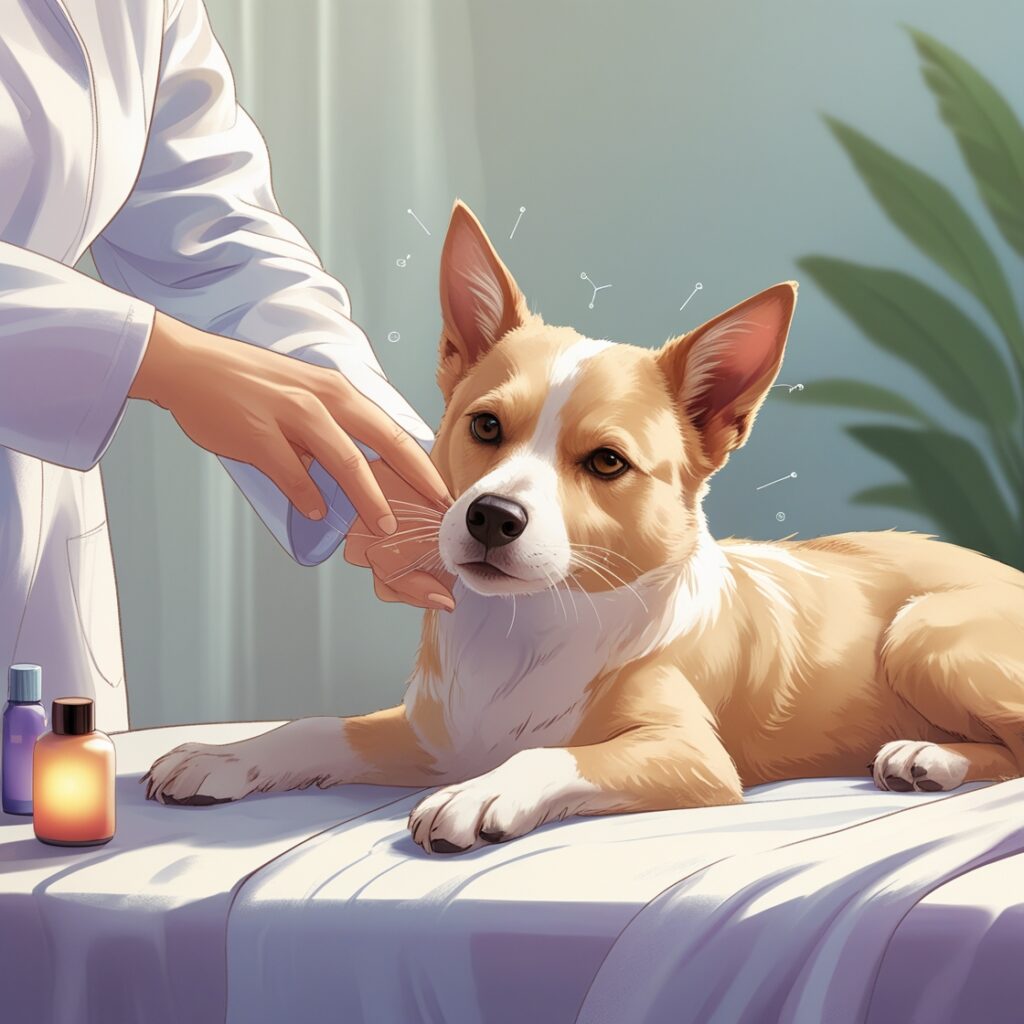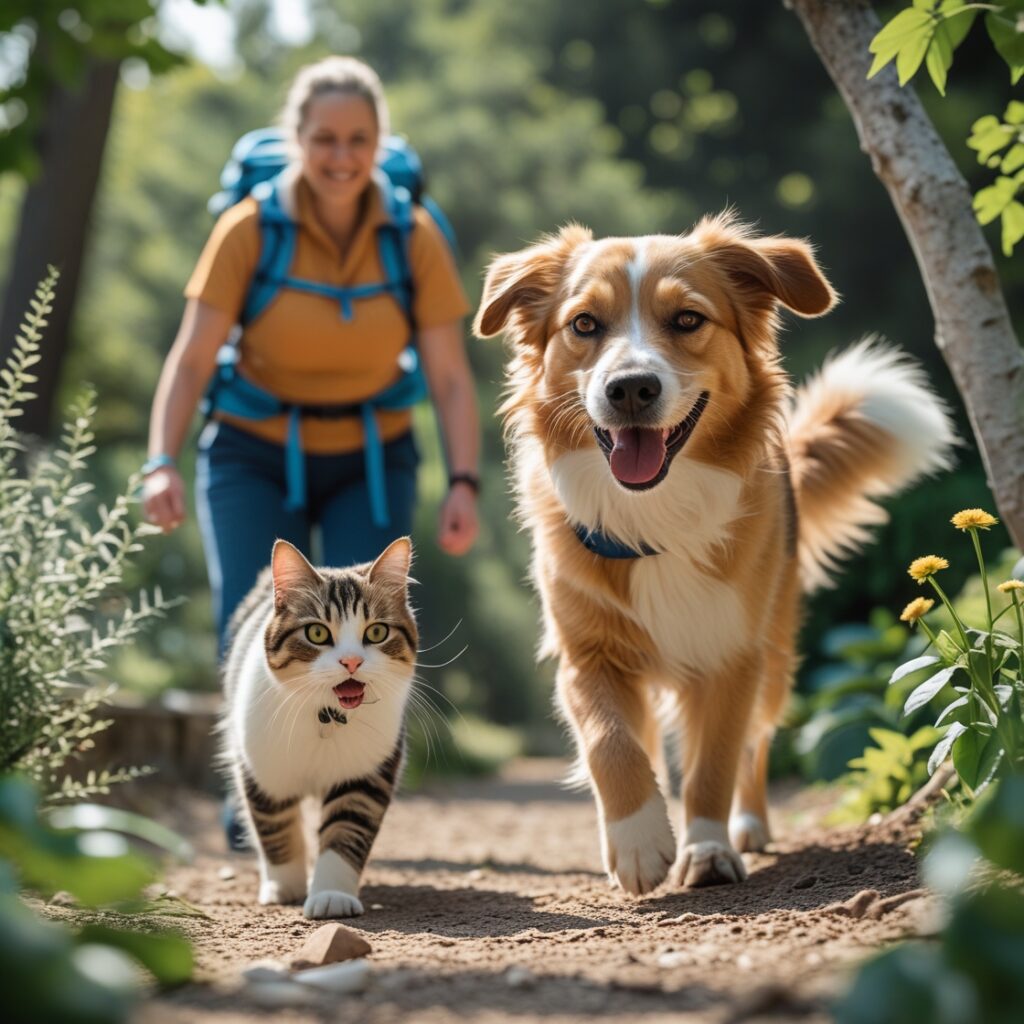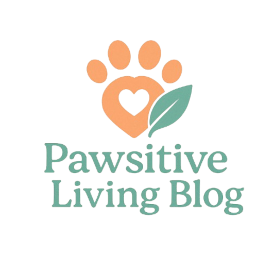🐾 Is your furry friend living their best life? As pet owners, we all want our beloved companions to thrive, but the path to optimal pet wellness isn’t always clear. With a dizzying array of pet care advice and products on the market, it’s easy to feel overwhelmed and uncertain about what’s truly best for your four-legged family member.
Enter holistic pet wellness – a comprehensive approach that considers every aspect of your pet’s health and happiness. From nutrition and exercise to mental stimulation and natural remedies, this philosophy offers a fresh perspective on pet care that goes beyond traditional methods. But how can you implement these practices in your pet’s daily routine? And more importantly, what impact will it have on their overall well-being?

In this ultimate guide to holistic pet wellness, we’ll explore seven key areas that contribute to your pet’s health and vitality. From understanding the basics of holistic care to addressing common health issues naturally, you’ll discover practical tips and expert insights to help your furry friend live a longer, happier, and healthier life. Let’s embark on this journey to unlock the secrets of holistic pet wellness together! 🌿🐶🐱
Understanding Holistic Pet Care
Defining holistic wellness for pets
Holistic pet care is an approach that considers the entire animal, focusing on physical, mental, and emotional well-being. This comprehensive method aims to treat the root cause of health issues rather than just symptoms. Holistic wellness for pets encompasses various aspects:
- Nutrition
- Exercise
- Mental stimulation
- Emotional support
- Environmental factors
- Preventive care
Benefits of a holistic approach
Adopting a holistic approach to pet care offers numerous advantages:
- Improved overall health
- Enhanced quality of life
- Reduced reliance on medications
- Stronger pet-owner bond
- Longer lifespan
| Benefit | Description |
|---|---|
| Prevention | Addresses potential health issues before they become serious |
| Natural healing | Utilizes the body’s innate ability to heal itself |
| Personalized care | Tailors treatments to individual pet needs |
| Reduced side effects | Minimizes adverse reactions associated with conventional treatments |
Integrating conventional and alternative therapies
A balanced approach to pet wellness combines traditional veterinary care with alternative therapies. This integration allows for a more comprehensive treatment plan:
- Conventional treatments: Regular check-ups, vaccinations, and necessary medications
- Alternative therapies: Acupuncture, herbal remedies, chiropractic care, and massage
By combining these approaches, pet owners can provide their furry companions with the best possible care. This integrated method ensures that pets receive both immediate medical attention when needed and long-term support for overall wellness. As we explore further, we’ll delve into the critical role of nutrition in maintaining your pet’s health and vitality.
Nutrition as the Foundation of Pet Health
Choosing the right diet for your pet
Selecting an appropriate diet is crucial for your pet’s overall health and longevity. Consider factors such as age, breed, size, and activity level when choosing a diet. Here’s a comparison of common pet food types:
| Food Type | Pros | Cons |
|---|---|---|
| Commercial Dry | Convenient, long shelf life | Often highly processed |
| Wet/Canned | Higher moisture content | More expensive, shorter shelf life |
| Raw | Mimics natural diet | Requires careful handling, potential bacteria risks |
| Homemade | Control over ingredients | Time-consuming, risk of nutritional imbalance |
The importance of whole foods
Incorporating whole foods into your pet’s diet can significantly boost their health. Whole foods provide essential nutrients in their natural form, which are often more bioavailable than synthetic alternatives. Some beneficial whole foods for pets include:
- Lean meats (chicken, turkey, fish)
- Vegetables (carrots, sweet potatoes, green beans)
- Fruits (blueberries, apples without seeds)
- Whole grains (brown rice, quinoa)
Supplements for optimal health
While a balanced diet should provide most necessary nutrients, supplements can help address specific health concerns or fill nutritional gaps. Common beneficial supplements include:
- Omega-3 fatty acids for skin and coat health
- Probiotics for digestive support
- Glucosamine for joint health
- Multivitamins for overall wellness
Avoiding harmful ingredients
Be vigilant about ingredients that can be detrimental to your pet’s health. Some common harmful ingredients to watch out for include:
- Artificial preservatives (BHA, BHT, ethoxyquin)
- Artificial colors and flavors
- By-products and fillers (corn, wheat gluten)
- Excessive amounts of salt or sugar
Now that we’ve covered the foundations of pet nutrition, let’s explore how physical activity and exercise contribute to your pet’s overall well-being.
Physical Activity and Exercise
Tailoring exercise to your pet’s needs
Every pet is unique, and their exercise needs vary based on factors such as age, breed, and health condition. Tailoring your pet’s physical activity is crucial for their overall well-being. Consider the following aspects when designing an exercise routine:
- Age: Puppies and kittens need short, frequent bursts of activity, while adult pets require longer, more structured exercise sessions.
- Breed: High-energy breeds like Border Collies need more intense workouts compared to laid-back breeds like Bulldogs.
- Health condition: Pets with joint issues or obesity may require low-impact exercises.
| Pet Type | Recommended Daily Exercise |
|---|---|
| Adult dog | 30-60 minutes |
| Adult cat | 15-30 minutes |
| Senior pet | 15-30 minutes (low-impact) |
| Puppy/Kitten | Multiple 5-10 minute sessions |
Indoor vs. outdoor activities
Balancing indoor and outdoor activities is essential for a well-rounded exercise routine. Outdoor activities provide fresh air and new stimuli, while indoor exercises offer convenience and safety.
Outdoor activities:
- Walks or jogs
- Fetch in the park
- Swimming (for water-loving pets)
Indoor activities:
- Obstacle courses
- Tug-of-war
- Laser pointer games (for cats)
Mental stimulation through play
Physical activity alone isn’t enough; mental stimulation is equally important for your pet’s holistic wellness. Incorporating brain-engaging activities into playtime can prevent boredom and reduce destructive behaviors.
Effective mental stimulation exercises:
- Puzzle feeders
- Hide-and-seek games
- Training sessions for new tricks
By combining physical exercise with mental challenges, you’ll ensure your pet remains happy, healthy, and well-balanced. Remember to always monitor your pet during activities and adjust the intensity based on their response and energy levels.

Natural Remedies and Alternative Therapies
A. Herbal medicine for pets
Herbal medicine offers a natural approach to supporting your pet’s health. Many herbs can be beneficial for common ailments:
- Chamomile: Calming and soothing for digestive issues
- Echinacea: Boosts immune system
- Ginger: Aids digestion and reduces nausea
- Calendula: Promotes wound healing
Always consult with a holistic veterinarian before administering herbal remedies to ensure proper dosage and safety for your pet.
B. Acupuncture and acupressure
These ancient Chinese practices can provide relief for various pet health issues:
| Technique | Benefits | Common Uses |
|---|---|---|
| Acupuncture | Pain relief, improved circulation | Arthritis, hip dysplasia |
| Acupressure | Stress reduction, immune support | Anxiety, digestive problems |
C. Massage therapy
Pet massage offers numerous benefits, including:
- Improved circulation
- Reduced muscle tension
- Enhanced bond between pet and owner
- Stress relief
Learn basic massage techniques from a certified pet massage therapist to incorporate this practice into your pet’s routine.
D. Homeopathy for common ailments
Homeopathy uses highly diluted substances to stimulate the body’s natural healing processes. Some popular homeopathic remedies for pets include:
- Arnica: For bruises and muscle soreness
- Nux vomica: For digestive issues
- Apis mellifica: For insect bites and stings
E. Essential oils and aromatherapy
Essential oils can be used to promote relaxation and address minor health concerns in pets. However, it’s crucial to use pet-safe oils and proper dilution methods. Some beneficial oils include lavender for calming and peppermint for nausea relief.
Now that we’ve explored natural remedies and alternative therapies, let’s consider how these approaches can contribute to your pet’s emotional and mental well-being.
Emotional and Mental Well-being
Recognizing signs of stress in pets
As pet owners, it’s crucial to understand and identify signs of stress in our furry companions. Stress can manifest in various ways, depending on the animal’s species and individual personality. Here are some common indicators to watch for:
- Changes in appetite or eating habits
- Excessive grooming or scratching
- Increased vocalization (barking, meowing, whining)
- Destructive behavior or aggression
- Withdrawal or hiding
- Changes in sleep patterns
- Unusual bathroom habits
By recognizing these signs early, you can take proactive steps to address your pet’s emotional needs and improve their overall well-being.
Creating a calm environment
A peaceful living space is essential for your pet’s mental health. Consider the following strategies to create a stress-free sanctuary:
- Provide a quiet retreat area
- Use calming scents like lavender or chamomile
- Maintain a consistent routine
- Minimize loud noises and sudden movements
- Use soft lighting and soothing colors
| Element | Benefit |
|---|---|
| Comfortable bedding | Promotes relaxation and better sleep |
| Interactive toys | Reduces boredom and anxiety |
| Pheromone diffusers | Mimics natural calming scents |
| Background music | Masks startling noises and creates ambiance |
Socialization and bonding
Fostering strong relationships with both humans and other animals is crucial for your pet’s emotional health. Regular social interactions can boost confidence, reduce anxiety, and provide mental stimulation. Consider these activities to strengthen your bond:
- Daily playtime and exercise sessions
- Training exercises using positive reinforcement
- Grooming and massage for physical touch
- Exploring new environments together
- Arranging playdates with other pets
Remember, each pet is unique, so tailor these approaches to suit your companion’s individual needs and preferences. With patience and consistency, you can significantly improve your pet’s emotional and mental well-being, contributing to their overall holistic health.
Preventive Care and Regular Check-ups
Importance of routine veterinary visits
Regular check-ups with your veterinarian are crucial for maintaining your pet’s overall health. These visits allow for early detection of potential issues and help establish a baseline for your pet’s well-being. Here’s why routine veterinary visits are essential:
- Early disease detection
- Vaccination updates
- Weight management
- Behavioral assessments
- Customized care plans
| Frequency | Pet Age | Recommended Check-ups |
|---|---|---|
| Every 3-4 months | 0-1 year | Vaccinations, growth monitoring |
| Every 6 months | 1-7 years | Preventive care, health screenings |
| Every 4 months | 8+ years | Senior pet care, chronic condition management |
Natural flea and tick prevention
Protecting your pet from fleas and ticks doesn’t have to involve harsh chemicals. Natural alternatives can be effective and safer for your pet’s health:
- Diatomaceous earth sprinkled on your pet’s coat
- Essential oil blends (carefully diluted and pet-safe)
- Regular grooming with a flea comb
- Neem oil as a natural repellent
Dental hygiene for pets
Good oral health is vital for your pet’s overall well-being. Poor dental hygiene can lead to serious health issues. Incorporate these practices:
- Daily tooth brushing with pet-safe toothpaste
- Dental chews and toys for natural cleaning
- Regular professional dental cleanings
Grooming as part of wellness
Grooming goes beyond aesthetics; it’s an integral part of your pet’s health routine. Regular grooming allows you to:
- Check for skin abnormalities or lumps
- Maintain a healthy coat and reduce shedding
- Strengthen the bond between you and your pet
- Reduce stress and anxiety in pets
Now that we’ve covered preventive care, let’s explore how to address common health issues using holistic approaches.
Addressing Common Health Issues Holistically
Managing allergies naturally
When it comes to managing pet allergies naturally, several holistic approaches can provide relief without relying on conventional medications. Here are some effective strategies:
- Dietary modifications:
- Eliminate common allergens (e.g., grains, dairy)
- Introduce novel protein sources
- Add omega-3 fatty acids for anti-inflammatory benefits
- Herbal remedies:
- Nettle leaf for antihistamine properties
- Licorice root for natural cortisone-like effects
- Chamomile for skin soothing
- Environmental adjustments:
- Regular cleaning to reduce allergens
- Use of air purifiers
- Hypoallergenic bedding
| Natural Remedy | Benefits | Application |
|---|---|---|
| Apple Cider Vinegar | Balances pH, relieves itching | Dilute and apply topically |
| Coconut Oil | Anti-inflammatory, moisturizing | Oral supplement or topical application |
| Quercetin | Natural antihistamine | Oral supplement |
Holistic approaches to pain management
Holistic pain management for pets focuses on addressing the root cause of discomfort while providing relief. Some effective methods include:
- Acupuncture and acupressure
- Massage therapy
- Hydrotherapy
- Herbal remedies (e.g., turmeric, boswellia)
- CBD oil (where legal)
These approaches can be particularly beneficial for pets with chronic conditions like arthritis or recovering from injuries. It’s essential to work with a holistic veterinarian to develop a tailored pain management plan.
Supporting senior pets
As pets age, they require special care to maintain their quality of life. Holistic approaches for senior pets include:
Conclusion
Holistic pet wellness encompasses a comprehensive approach to caring for our furry companions. By focusing on nutrition, physical activity, natural remedies, emotional well-being, and preventive care, pet owners can significantly enhance their pets’ quality of life. This integrated strategy addresses not just physical health but also mental and emotional aspects, ensuring a well-rounded approach to pet care.

As responsible pet owners, it’s crucial to embrace these holistic principles and incorporate them into our daily routines. By doing so, we can create a nurturing environment that promotes longevity, happiness, and vitality in our beloved pets. Remember, a holistic approach to pet wellness is an ongoing journey of love, commitment, and continuous learning, ultimately leading to a stronger bond between you and your four-legged family members.




Very clear website , regards for this post.